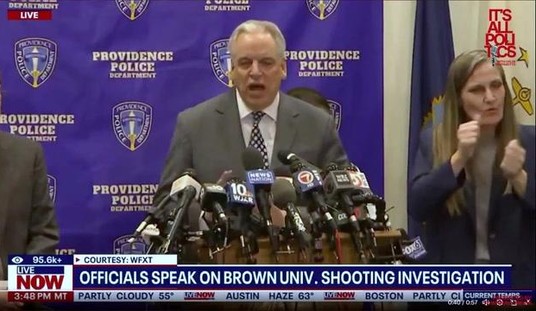Missouri Rep. Emanuel Cleaver (D) said he hopes bipartisan support will propel a bill intended to counter one of the main Justice Department findings in the recently released report on police practices in Ferguson.
The review found city officials viewing law enforcement as a “tool for raising revenue,” in the words of Attorney General Eric Holder, which “fostered unconstitutional practices at nearly every level.”
Cleaver introduced last week the Fair Justice Act “to end the practice of using law enforcement as a cash register, a practice that has impacted too many Americans and has disproportionately affected minority and low-income communities.”
The bill would make law enforcement simply to raise revenue a civil rights violation punishable by up to five years behind bars.
It would also bar municipalities from generating more than 35 percent of their budget from traffic tickets.
That, Cleaver said on MSNBC this morning, “amounts to taxation by citation.”
The congressman said they’re trying to “make sure we get bipartisan support” for the legislation. “I don’t think there’s any reason we won’t,” he said.
Sen. Rand Paul (R-Ky.) has “reached out” with interest about introducing companion legislation in the Senate.
“You know, if you — I grew up in Texas. When I was a kid, when my father would drive the family through a place called Saginaw, my mother would say, all right, you know, we’re in Saginaw, you better slow down. I mean, these are — these towns exist all around the country where revenue was generated,” Cleaver said.
Cleaver, the former chairman of the Congressional Black Caucus, said he thinks the only person surprised by the Justice Department report was Ferguson Mayor James Knowles.
“I was not shocked. I went in there and I started a little church about three years ago, Wellspring United Methodist Church. And it’s a little town that the civil rights movement bypassed. It’s 1960 in Ferguson in 2016,” he said.
“I think the St. Louis suburbs are surrounded by — I mean, are connected to the big city of St. Louis. And then many of the African-Americans, poor people, moved out because those were working-class neighborhoods. They could afford the property out there. They could afford homes. They could afford to rent. And I think that, you know, when you got a large number of minorities moving into a suburban community, it’s going to create a problem because the workforce and the power structure is going to be almost all white.”
The congressman added, “Just because that’s the way it always has been.”









Join the conversation as a VIP Member